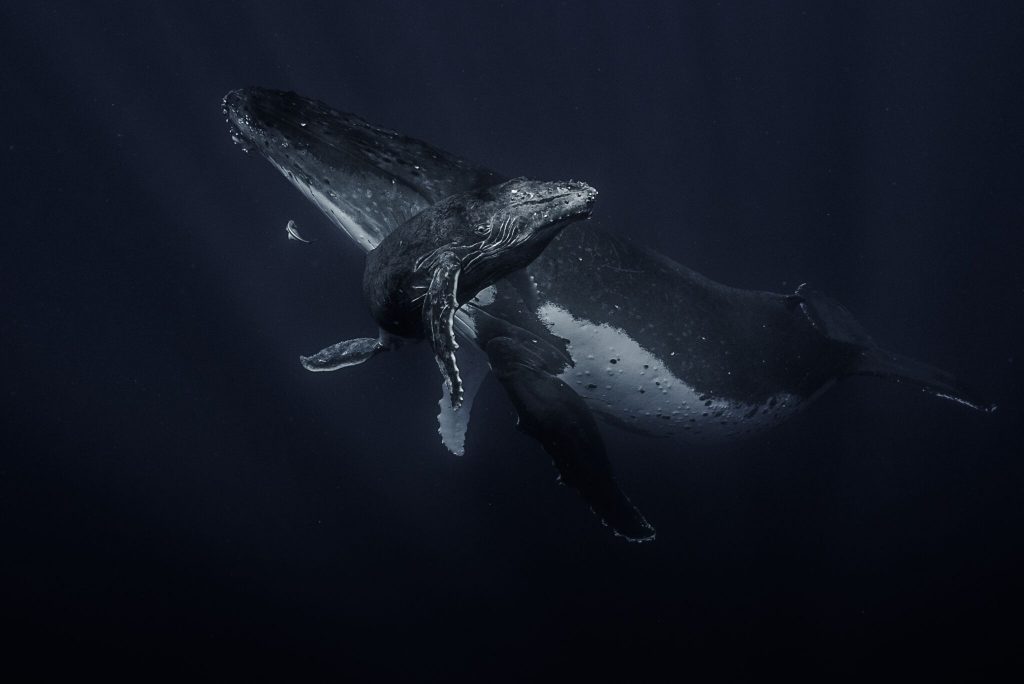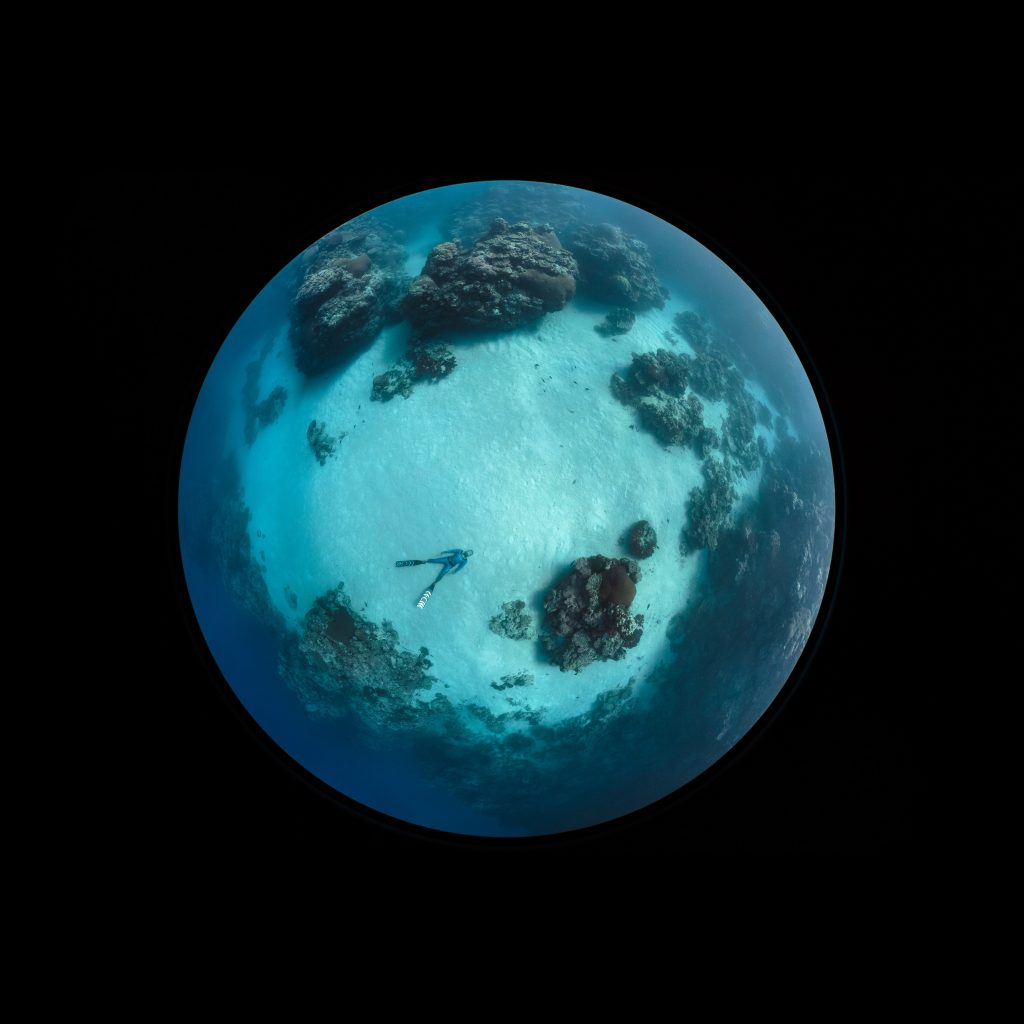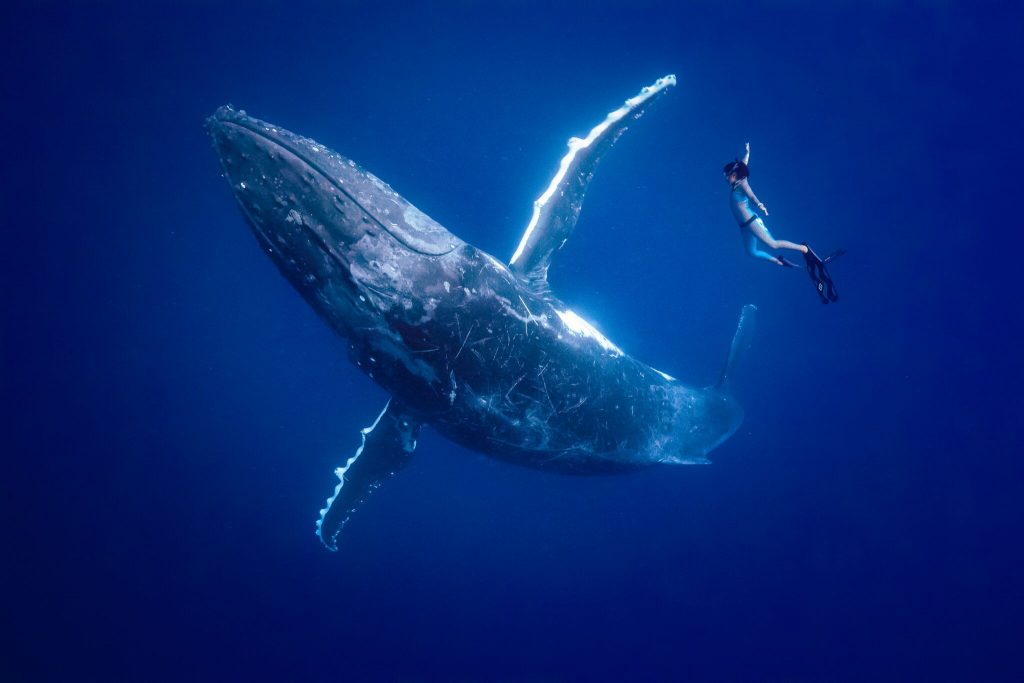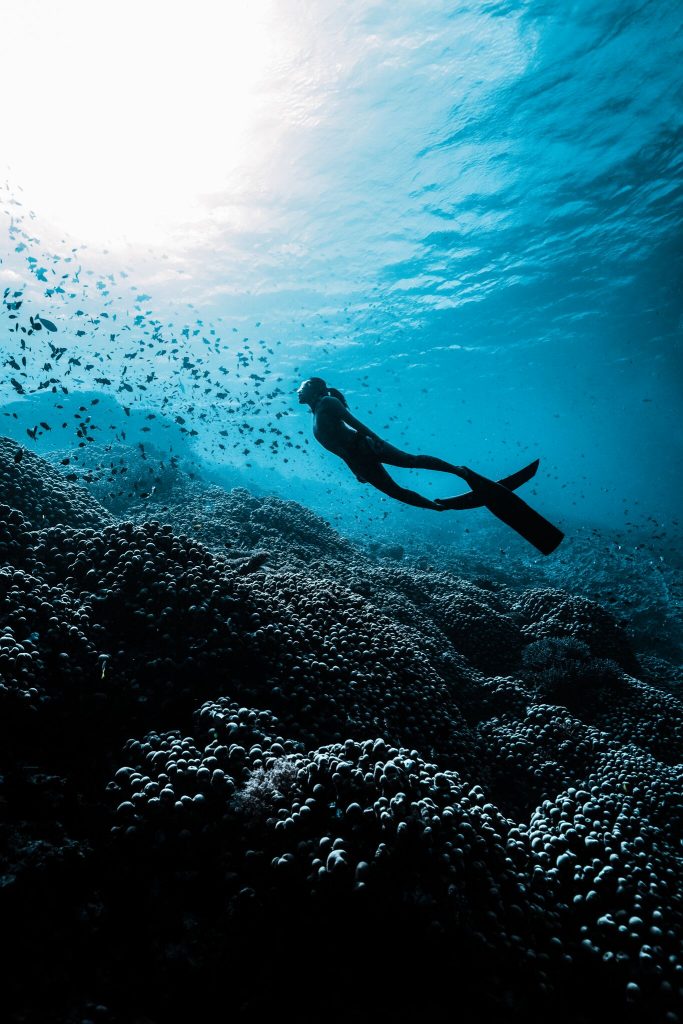← Back
Ai Futaki, Free Diver
Interview, 21 September 2016
Holding a Guinness World Record for the longest distance swam in one breath and having devoted her life to sharing the beauty of being connected to water – Japanese free diver, educational speaker and documentary filmmaker Ai Futaki is determined to teach two things: the importance of being yourself and how we can live in harmony with nature.
Her life in and around water began at the age of three when she took up competitive swimming in her hometown of Kanazawa, on the west coast of Japan. After a few years of studying film and documentary filmmaking in places like Cuba and California, scuba diving became the primary passion for Ai Futaki, before she eventually moved on to free diving in 2007.
Since then, Futaki has travelled the world, diving in some of the most exotic places on the planet and with some of the most astounding creatures, documenting her adventures alongside major outlets such as The Discovery Channel and Red Bull.
One of the first projects she undertook after returning to Japan was a documentary about the Ama-san women, mythological free diving experts who live in secluded communities close to her hometown of Kanazawa. These divers have used the ocean as their workplace for thousands of years, diving for sea urchins and pearls using no modern equipment.
When not in the water, Futaki holds talks and conferences about our connection with the oceans, aiming to bridge the gap between marine life and the human world, using free diving and documentaries as her means of communication.
Our curiosity prompted us to get in touch with Ai Futaki to hear more about her fascinating career, mission in life and how we can coincide with nature.
Growing up on the west coast of Japan, what was it that drew your attention to the ocean in the first place?
– I grew up in a city called Kanazawa, facing the Sea of Japan, and the ocean was only 15 minutes away from my house. Since I had been practicing competitive swimming from the age of three I guess I had more of a connection with the pool than the sea, but water was always around me and I felt naturally drawn to it from an early age.

“We have so many tools today like email, phones, text messages and stuff, but are we really communicating?”
After scuba diving for a few years, you transitioned into free diving. What was it about free diving that appealed to you?
– When I started scuba diving in Honduras years ago I immediately felt like home.
But when I started filming documentaries under water with my scuba gear I would scare the fish away, because of all the bubbles and all the noise the scuba gear generates. I felt like an outsider and I needed to find another way of blending in with the environment. One day a friend of mine introduced me to free diving and upon trying it I quickly realized it was the only way for me to be natural under water.
As a cinematographer – what are the advantages of shooting while free diving as opposed to scuba diving?
– If you want to observe something, scuba diving is the best way because it enables you to stay under water for long periods of time. But if I want my audience to feel they are diving together with me, free diving is the best way. Free diving also lets you get close to the animals as if you are one of them, and because I don’t have any tubes on my back I can go up and down whenever I want.

Can you describe the feeling you get when entering the ocean?
– I feel like coming home. Yet I always remind myself that I’m the visitor and that I have to respect their habitat. I try not to rush myself into their world. I take my time for them to get used to me, that’s how I can get close and really interact with the animals. I believe that if I respect them, they will respect me in return.
You spent some time living with the legendary Ama-san diving women, famous for their diving skills that have been passed down for generations; how tough was it getting them to welcome you into their world?
– Every time I come to a new place I observe, listen and try to blend in. When I went to film the Ama divers for the first time I felt like an animal in a zoo. They were checking my every move and I knew that if I made a mistake or did something they didn’t approve of my opportunity would be gone.
Luckily, I met one very open and friendly Ama woman who took me in and helped me understand their way of being both in the water and on land.
– A year after my first visit I came back with a team from the Discovery Channel to film a documentary sponsored by the Japanese government. This time they were very welcoming due to the fact that I had shown a genuine interest and had come back for a second time. They saw me as part of the family and not just as someone who was merely passing through as a tourist. They allowed me to film under water and shared their thoughts and passion about the ocean and the life of being an Ama diver.

What motivates you to keep pursuing the things you do and to push yourself to break boundaries?
– This is my mission in life, to act as a bridge between the underwater world and the human world. Most pictures from underwater is from a human point of view and I have a hard time feeling connected when I see them, so what I aim to do is to show the underwater world from the underwater point of view.
Before I wanted to “change” the things I thought were wrong, but after learning Yoga I realized that my desire to change things was just my ego. What I try to do instead is to plant seeds for others to make up their own minds.
Can we teach coming generations to appreciate and respect nature more?
– I really hope so. But I think it’s hard to preach to the youth and make them care by giving them a bad conscience, so the best way for me to make a difference is to share my experiences and images of this world over and over so that people will feel responsible and will want to change things for the better.
– A problem with young people today is that they think every solution is just a click away. Especially in Japan, kids don’t compete like they used to in school. Everybody gets an A or A plus just for participating and life is not really like that when you become an adult. Then the competition starts for real.
I believe this makes the younger generations less humble than previous ones and I don’t see the same excitement in kids today.
“Free diving lets you get close to the animals, as if you were one of them.”

What is it that worries you the most about the future of our oceans?
– Human beings destroy everything in the world to make our lives easier. We live in a dream world where we think that nothing will have an impact on the ocean just because it is so big. But everything is connected, so whatever we do with our planet it will have an effect on the ocean and will eventually come back to affect us as well.
And your mission is to change that mind set?
– More than to change, I would like to plant a seed. So let’s see if it can have an effect on the way we think about our planet. I feel that people are learning little by little, so I am actually optimistic for the future.

Your most recent and ongoing project is a series for Japanese national television where you so far have dived with sperm wales off the coast of Dominica and with orcas in New Zeeland. What was that experience like?
– Every time I dive with large mammals I can really visualize their stories. They have such a strong connection within their social group. It taught me a lot about the connection between a mother and her cub, about hunting, mating and the beauty of love. And whenever I see all that I go: “Well, how about us humans?” We have so many tools today like email, phones, text messages and stuff, but are we really communicating? With all the new technology we really left something essential behind. It’s so important to be in the present…
For more information please visit:
www.aifutaki.com